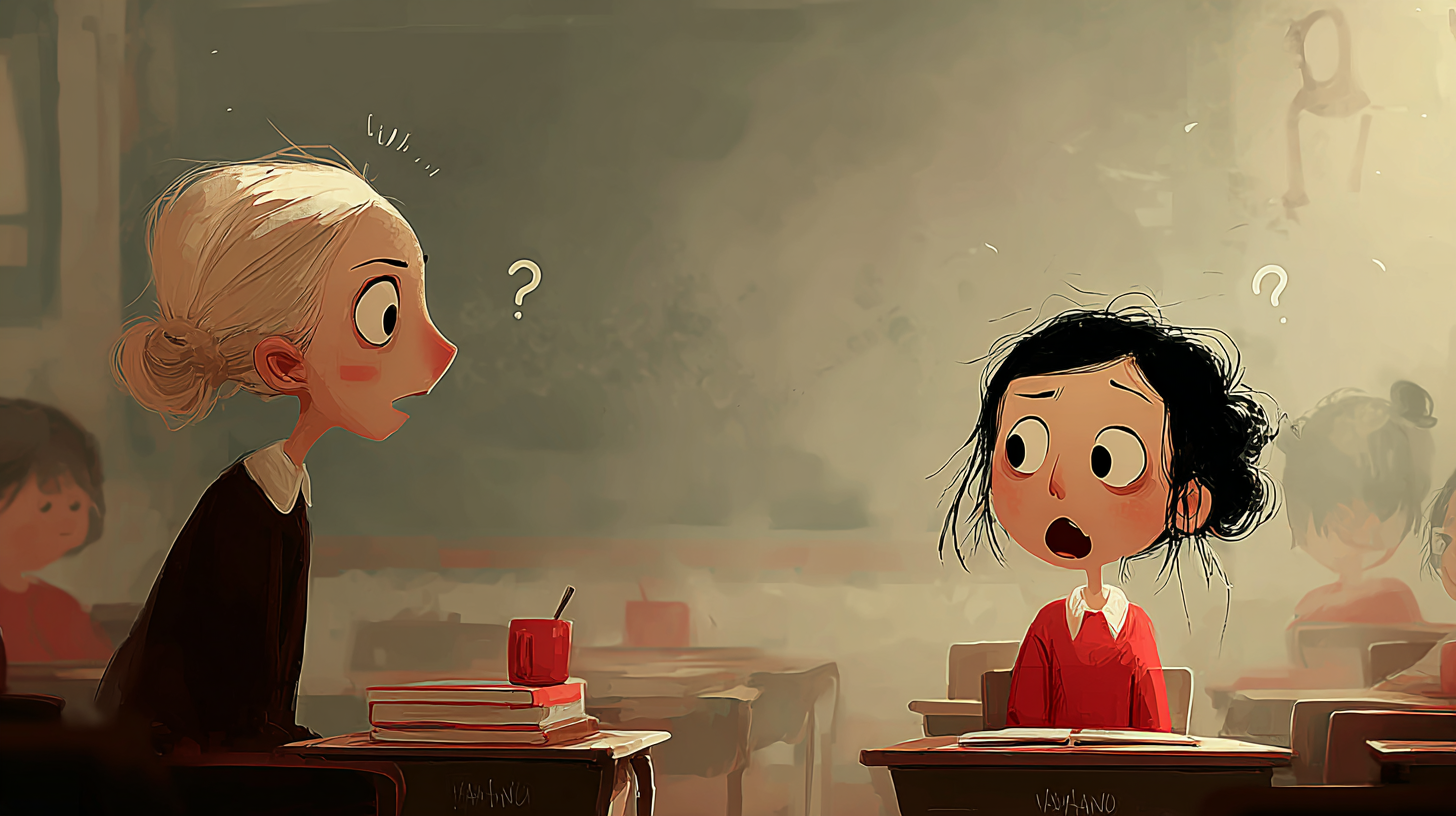“Reaction” means “a response or change to something.”
「reaction」は「何かに対して返す動きや変化」という意味です。
以下は英単語 “reaction” に関するストーリー型学習コンテンツです。まずは大枠の意味を理解して最後の文章で確認しましょう。
主な意味(main meaning)
| 品詞 | 発音記号 (IPA) | 意味 | 例文 |
|---|---|---|---|
| 名詞 | /riˈækʃən/ | 反応、リアクション | His reaction was slower than expected. |
| 名詞 | /riˈækʃən/ | 化学反応 | The chemical reaction created a bright light. |
語源(etymology)
ラテン語 re-(戻る)+ agere(動かす)が語源
核となるイメージは「刺激に対して返ってくる動き」
類義語(synonyms)
| 類義語 | 例文 |
|---|---|
| response | Her quick response saved the situation. |
| reply | He gave no reply to my question. |
| feedback | The teacher gave me helpful feedback. |
| answer | I don’t know the answer to that problem. |
反義語(antonyms)
| 反義語 | 例文 |
|---|---|
| action | We must take action immediately. |
| inaction | His inaction caused serious trouble. |
コロケーション(collocations)
| コロケーション | 例文 |
|---|---|
| quick reaction | The driver’s quick reaction avoided the accident. |
| emotional reaction | Her emotional reaction surprised everyone. |
| allergic reaction | He had an allergic reaction to peanuts. |
| chain reaction | The news caused a chain reaction of panic. |
2項表現(binomials)
| 2項表現 | 例文 |
|---|---|
| trial and error | We learned the skill through trial and error. |
| cause and effect | The teacher explained cause and effect clearly. |
英語ストーリー(english story)
The Unexpected Reaction
It was a Monday morning at GreenTech Company, and the office was unusually quiet. Anna, a young project manager, had just returned from a weekend workshop about “cause and effect” in business decisions. She was eager to share her ideas with her team.
During the morning meeting, Anna presented a new plan for the upcoming project. She expected a quick reaction from her colleagues, but at first, there was silence. Then James, her assistant, gave the first response. “I think this idea could work,” he said, “but we need more details.” His calm reply gave Anna some confidence.
Suddenly, Sarah, another team member, had a very emotional reaction. “This plan is too risky!” she exclaimed. “If something goes wrong, it could start a chain reaction of problems with our clients.” Her strong words made the room tense. Anna tried to give a clear answer, but Sarah’s inaction afterward—just crossing her arms and refusing to discuss further—made the situation worse.
Anna decided to ask for feedback from the rest of the team. Most of them gave supportive responses, but one member, Tom, remained quiet. When Anna asked for his opinion, he finally said, “I don’t have an answer yet. I need more time.” Anna respected his honesty and moved on.
That afternoon, the team had to test their new software. The test was full of trial and error. At one point, James pressed the wrong button, and the system froze. However, his quick reaction saved the data from being lost. Everyone laughed a little, and the mood improved.
Later in the day, something unexpected happened. Another employee, David, suddenly started coughing and his face turned red. He was having an allergic reaction to some peanuts he had eaten during lunch. Anna immediately took action, calling the nurse and making sure David was safe. Thanks to her quick decision, the problem was solved quickly.
By the end of the day, the team gathered again to review what had happened. Anna summarized: “Today we saw many types of reactions—emotional reaction, quick reaction, even allergic reaction. We also saw the danger of inaction. But we learned something important: through trial and error, and by understanding cause and effect, we can improve as a team.”
Everyone nodded. Even Sarah smiled a little, admitting, “Maybe I reacted too strongly this morning.” Anna replied kindly, “It’s okay. Every reaction teaches us something.”
The team left the office tired but wiser. They knew that reactions—whether quick, emotional, or calm—were not just results, but also opportunities to learn and grow.
和訳
予想外の反応
月曜日の朝、GreenTech社のオフィスはいつもより静かでした。若いプロジェクトマネージャーのアンナは、週末に「cause and effect(原因と結果)」についてのビジネス研修を受けて帰ってきたばかりでした。彼女はそのアイデアをチームに共有したいと思っていました。
朝のミーティングで、アンナは新しい計画を発表しました。彼女はすぐに quick reaction(素早い反応) を期待していましたが、最初は沈黙が続きました。すると助手のジェームズが最初に response(応答) をしました。「このアイデアはうまくいくかもしれませんが、もっと詳細が必要です」と冷静に答えたのです。その落ち着いた reply(返答) はアンナに少し自信を与えました。
突然、別のチームメンバーのサラがとても emotional reaction(感情的な反応) を示しました。「この計画は危険すぎます!」と彼女は叫びました。「もし何かがうまくいかなければ、クライアントとの関係に chain reaction(連鎖反応) を引き起こすかもしれません。」強い言葉で部屋は緊張しました。アンナは明確な answer(答え) をしようとしましたが、その後サラが腕を組んで黙ってしまうという inaction(不作為) が、状況をさらに悪くしました。
アンナは他のメンバーに feedback(意見や評価) を求めました。ほとんどの人は協力的な responses(応答) をしましたが、一人のトムは黙っていました。アンナが彼の意見を尋ねると、彼はついに言いました。「まだ answer(答え) が出ません。時間が必要です。」アンナは彼の正直さを尊重し、次へ進みました。
午後、チームは新しいソフトウェアをテストしました。そのテストは trial and error(試行錯誤) の連続でした。あるとき、ジェームズが間違ったボタンを押してシステムが止まりました。しかし、彼の quick reaction(素早い反応) でデータは失われずに済みました。みんな少し笑い、雰囲気が良くなりました。
その日の後半、予想外のことが起きました。社員のデイビッドが急に咳をし、顔が赤くなりました。彼は昼食に食べたピーナッツで allergic reaction(アレルギー反応) を起こしていたのです。アンナはすぐに action(行動) を取り、看護師を呼び、デイビッドの安全を確保しました。彼女の素早い判断で問題はすぐに解決しました。
一日の終わりに、チームは集まって今日の出来事を振り返りました。アンナはまとめました。「今日はたくさんの種類の reactions(反応) を見ました。感情的な反応、素早い反応、アレルギー反応もありました。さらに、不作為の危険性も見ました。でも大事なことを学びました。trial and error(試行錯誤) を通して、cause and effect(原因と結果) を理解することで、私たちはチームとして成長できるということです。」
みんながうなずきました。サラも少し笑って、「今朝は強く反応しすぎたかもしれません」と認めました。アンナは優しく答えました。「大丈夫です。すべての反応が、私たちに何かを教えてくれます。」
チームは疲れてはいましたが、より賢くなってオフィスを後にしました。彼らは理解していました。反応とは単なる結果ではなく、学びと成長のきっかけなのだと。
Q&A
Q: 「reaction」と「response」の違いは?
A: 「reaction」は感情や体の変化なども含む幅広い「反応」を表します。一方「response」は主に言葉や行動による「返事」「応答」を指します。
Q: 「reaction」と「reply」の違いは?
A: 「reply」は会話やメールなどで相手の発言に対する「返答」を意味します。「reaction」はもっと広く、驚いた表情や体の動きなども含められます。
Q: 「reaction」と「feedback」の違いは?
A: 「feedback」は特に「評価」や「助言」として返す反応を指します。例えば先生が生徒に出すコメントや、顧客が製品について伝える意見が「feedback」です。「reaction」は自然な反応や感情も含みます。
Q: 「reaction」と「answer」の違いは?
A: 「answer」は質問や問題に対して正しい返事や解決を与えるものです。「reaction」は必ずしも正しい答えではなく、驚き、怒り、笑いなどの「反応」を含みます。
Q: 「reaction」と「action」の違いは?
A: 「action」は自分から積極的に行う「行動」を意味します。「reaction」は外からの刺激や出来事に対して返ってくる「反応」です。
Q: 「reaction」と「inaction」の違いは?
A: 「inaction」は「何もしないこと、行動しないこと」を意味します。「reaction」はその逆で、何かに対して何らかの変化や応答を示すことです。
Q: 「quick reaction」と「emotional reaction」の違いは?
A: 「quick reaction」は危険回避やスポーツなどでの「素早い反応」を指します。「emotional reaction」は喜び、怒り、驚きなど、感情に基づいた反応を表します。
Q: 「allergic reaction」と「chain reaction」の違いは?
A: 「allergic reaction」は医学的な「アレルギー反応」です。「chain reaction」は「連鎖的に起こる反応や出来事」で、化学・社会現象・日常会話でも使われます。
Q: 「trial and error」と「cause and effect」の違いは?
A: 「trial and error」は「試して間違え、学びながら進むこと」を意味します。「cause and effect」は「原因と結果の関係」を説明する言葉で、科学や論理的な説明に使われます。



コメント